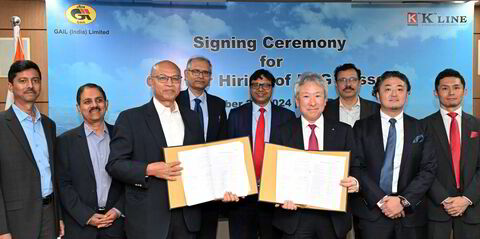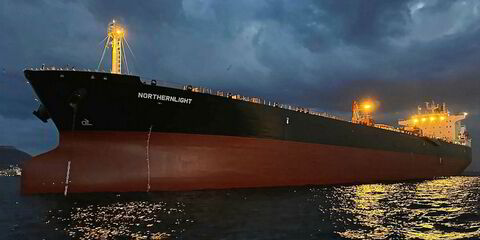Analyst Noah Parquette says the consensus view is “over-optimistic” about the medium term prospects for the sector, with spot rates likely to remain weak for longer than is widely believed.
While the analyst says the LNG sector is starting to see long term structural changes, he believes the increase in demand is already mostly matched by the newbuilding orderbook.
“Furthermore, we see a continued global backdrop of low oil prices as a negative for the industry, as it reduces the price discrepancy between oil-indexed LNG and other price mechanisms, limiting East-West arbitrage opportunities and dampening the economic rationale for new liquefaction projects, particularly in the US,” Parquette said.
“While the current spot market is very weak as a result of oversupply, the consensus seems to be that future demand growth as new liquefaction projects come online should improve the supply/demand balance.
“This can be seen in the fact that new long-term period charter rates have held relatively steady.
“However, we are wary of that view. Our bottom-up supply/demand model indicates that the market could gradually worsen until as late as 2017 before demand growth starts to bring things into balance by 2020.”
Parquette also believes the emergence of triangulation opportunities will make the existing fleet more efficient, potentially pushing the balancing of supply and demand out by an extra year or two.
JP Morgan’s LNG coverage spans GasLog and GasLog Partners, plus Teekay LNG Partners.
Parquette has a neutral rating on the two GasLog companies and an overweight rating on Teekay Partners.



